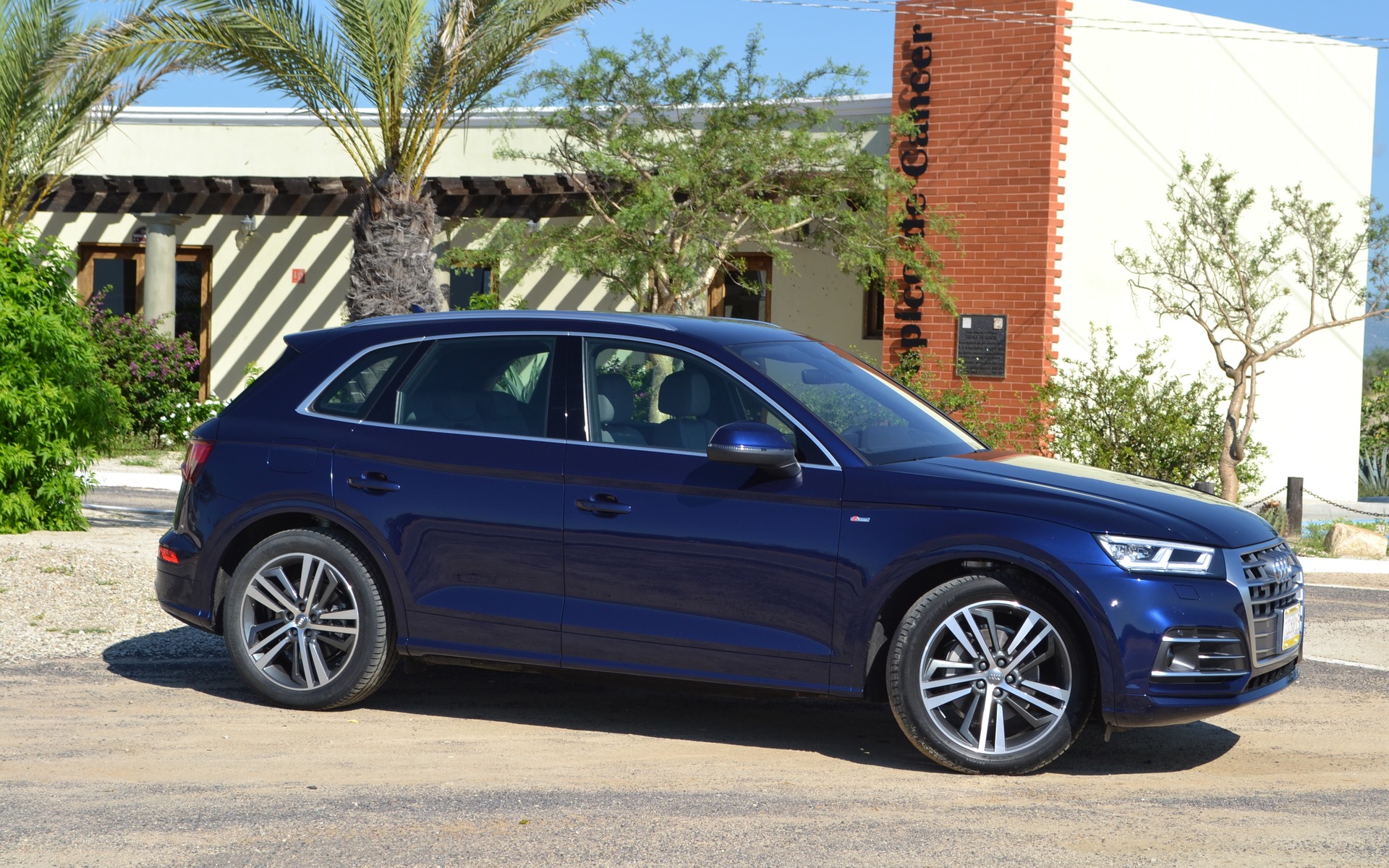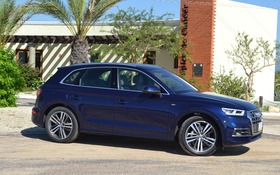2018 Audi Q5 driven and tested!

| Strong points |
|
|---|---|
| Weak points |
|
The Audi Q5 originally hit the Canadian market in 2009 and soon became the best-selling model not only in Audi’s lineup, but also in the compact luxury SUV segment. No wonder this product is now so crucial to the four-ring brand’s success.
While the all-new, second-generation Q5 made its global debut at the 2016 Paris Motor Show a couple of weeks ago, only a select few members of the media from around the world were invited to this drive event. The Car Guide was one of them.
- Also: Una cerveza and the new 2018 Audi Q5, por favor!
- Also: The New Audi Q5 to be Unveiled at the Paris Motor Show
We travelled to Mexico, home of the 2018 Audi Q5, which is built at a completely new assembly plant in San Jose Chiapa. Launching a new plant is always quite a challenge, especially when it’s the automaker’s first in North America.
Will quality suffer as a result? Don’t worry, Audi says. Fully aware that any reliability issue could prove catastrophic for the brand, the operation was carefully planned over more than five years and a number of executives and engineers moved to Mexico to oversee the entire process.

Starting from scratch
The 2018 Audi Q5 has been redesigned from the ground up and shares virtually nothing with its predecessor. There’s an all-new modular platform that will underpin several other vehicles from Volkswagen AG in the future. Larger in every dimension, the Q5 offers more interior room than before (especially where headroom is concerned), yet it tips the scales a full 90 kilograms lighter.
In terms of styling, we can see a nice evolution from the outgoing model. The use of LEDs for the headlights and taillights brings a decidedly modern touch. Sporty-looking wheels continue to play a key role in defining the Q5’s aspirations, as does the dual exhaust built into the lower part of the rear bumper. Furthermore, the S line package adds another layer of sportiness; it’s certainly worth the extra cost if you like cars that are a bit flashier.
Inside, the layout is heavily borrowed from the new Audi A4. The dashboard is the same and includes the Audi virtual cockpit. This all-digital display excels at being both technologically advanced and easy to customize and figure out, unlike some other systems from the competition that get you lost in a complex arrangement of menus.
The centre console is super-wide and intrusive, however, affecting front-seat legroom. On the plus side, the 12.3-inch infotainment screen sitting at the top à la Mercedes-Benz proves relatively simple to use. Then again, it’s not even touch-sensitive. That will come soon, Audi assures.
Controversy surrounding quattro
When it goes on sale next spring, the 2018 Audi Q5 will be available with a single powertrain, namely a 2.0-litre, four-cylinder turbocharged engine. It’s not like the TFSI we already know (which has been built in Mexico by Volkswagen for many years); for its third generation, output is up from 220 to 252 horsepower, along with 273 lb.-ft. of torque, thanks in large part to revised pistons, stronger materials, and a specially developed turbocharger.
The 3.0L TFSI V6 might return, but as far as we could tell from our conversation with Audi engineers, it seems unlikely to. Same thing for the TDI engine. One thing’s for sure, though: A new hybrid variant is coming. And a high-performance SQ5, too.
The most controversial aspect of the 2018 Audi Q5 is the new quattro system with ultra technology (with video). Whereas the previous unit permanently engaged the four wheels, this one always disconnects the rear axle in normal driving conditions, sending all of the engine’s torque to the front. When necessary, the twin-clutch system will quickly re-engage the rear axle, allowing 100% of the torque to shift to those wheels while also varying distribution left and right.
But why? The explanation is simple, really: automakers like Audi need to achieve specific emissions targets and every little thing counts. This new AWD system, first introduced on the 2017 Audi A4, reduces friction between the various mechanical parts, saves roughly 15 kilograms, and more importantly, improves fuel economy by a not-so-trivial margin.
In Audi’s defense, it felt every bit as competent when we put the new Q5 to the test during our exclusive drive in Mexico. Of course, a more extensive road test back in Canada, especially in winter driving conditions, should provide further validation. If you still can’t accept this change, take solace in the fact that more powerful Q5 models will continue to rely on the classic quattro system.

Air suspension is a hit and miss
Engineers worked hard to make the cabin quieter and it shows. Even at highway speeds, the 2018 Audi Q5 remains sublimely silent. They have also developed an air suspension that effectively soaks up every road imperfection and allows drivers a higher degree of tailoring.
Unfortunately, for the sake of affordability, there are no plans to offer it up here. Even the folks at Audi Canada can’t understand this one. Why not make the air suspension available as a standalone option or part of a package for those who might be interested? More choices always mean more profit; just ask Porsche!
We did appreciate the power of the new turbo four, particularly its readily accessible torque that you can summon with just the tip of your foot. The seven-speed S tronic transmission performed flawlessly, as well. Audi seldom misses a beat.
Fuel consumption ratings have yet to be announced, although you should know that our brief test drive netted an average of 10 L/100 km. And we didn’t even have to make a conscious effort.
Ultimately, the second-generation 2018 Audi Q5 marks a good step forward, combining all the ingredients to maintain its domination in the compact SUV segment. Pricing will have to stay competitive, though, because the other contenders are never too far behind.











